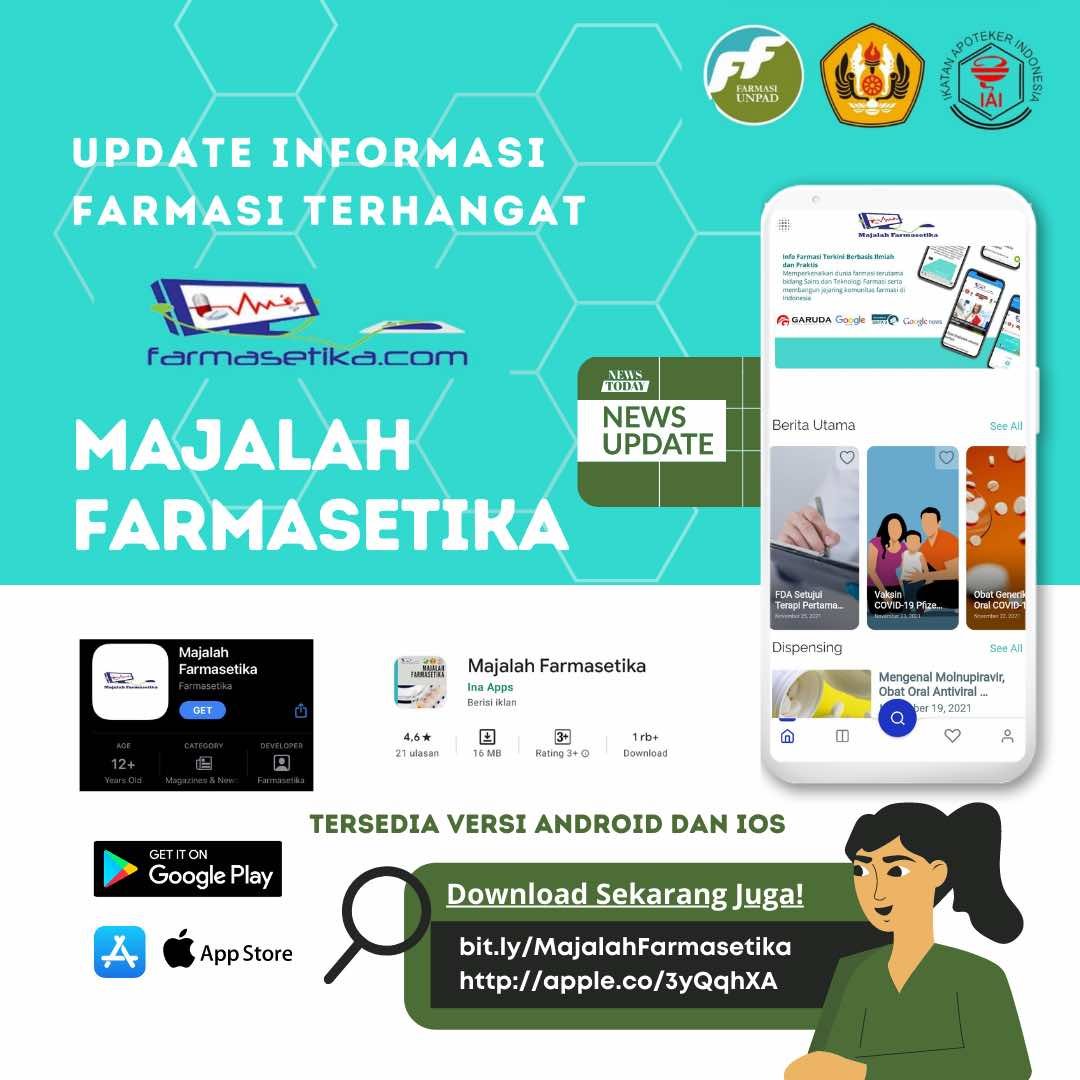Analysis of Hospital Pharmacist Credentials in Yogyakarta Region
Abstrak
Competent human resources such as doctors, nurses, pharmacists and others will improve the patient safety of a hospital. To assess the competence of hospital human resources can be measured by credentials. The credential process needs to be done to the pharmacist because although a pharmacist has received a pharmacist's diploma from an accredited college, the hospital remains obliged to perform competence verification through the credential process for the patient safety in the hospital and also considering the competence of a person influenced by several factors. The purpose of this study is to analyze the pharmacy credential system in Indonesia, especially the pharmacist credential system in the Yogyakarta area hospital. A qualitative study using in-depth interview and focus group discussions were conducted in three hospitals in Yogyakarta with different characteristics. In-depth interview was attended by 1 participant, consisting of the representatives of the professional organization. Every FGD was attended by 5-10 participants, consisting of pharmacists working in hospitals in Yogyakarta. The results of the in-depth interview and FGDs were analyzed with a qualitative approach. Currently there is no specific law enforcement regulation related to the credential system for pharmacists. The credential system becomes a hospital requirement after the accreditation and fulfillment of administrative requirements of accreditation become the main motivation held pharmacist credentials. Pharmacist has the needs of improving the credential system both in theory and application. The absence of legally enforceable regulations has resulted in many unfamiliarities. Expectations of pharmacist practitioners on the process of ideal pharmacist credentials are possible with supporting elements of professional organizations.
Teks Lengkap:
PDFReferensi
Joint Commission International. (2014). Joint Commission International Accreditation Standards for Hospitals, 5th Edition, USA.
Costa M.H., Shulman R.O.B., Bates I. N. (2012). A Credentialing Process for Advanced Level Pharmacists : Participant Feedback. Pharm J, 288(May):1–5.
Burns, A.L., Teeters, J., Witmer D.R., Ellis W. (2014). Credentialing and Privileging of Pharmacists: A Resource Paper from the Council on Credentialing in Pharmacy: Council on Credentialing in Pharmacy. Am J Heal Pharm, 71(21):1891–900.
Depkes RI. (2005). Keputusan Menteri Kesehatan Rumah Sakit No.631/ MENKES/ SK/IV/2005 tentang Peraturan Internal Staf Medis. Jakarta: Depkes RI.
Depkes RI. (2013). Peraturan Menteri Kesehatan RI No. 49 th. 2013 tentang Komite Keperawatan Rumah Sakit, Jakarta; Depkes RI.
McKenzie, C., Borthwick, M. (2011). Developing a Process for Credentialing Advanced Level Practice in the Pharmacy Profession using a Multi-source Evaluation Tool. Pharm J., 286:1-5.
Cruess, R.L., Cruess, S.R., & Johnston, S.E. (2000). Professionalism and Medicine's Social Contract. The Journal of Bone & Joint Surgery, 82 (8), 1189–1189.
Sullivan, W.M. (2000). Medicine Under Threat: Professionalism and Professional Identity. Canadian Medical Association Journal, 162 (5), 673–675.
Dager W, Bolesta S, Brophy G, Dell K, Gerlach A, Kristeller J, et al. (2011). An Opinion Paper Outlining Recommendations for Training, Credentialing, and Documenting and Justifying Critical Care Pharmacy Services. 31(8):829–829.
Herkutanto. (2008). Credential and Clinical Privileges, The Way to Patient Safety. Jakarta.
Refbacks
- Saat ini tidak ada refbacks.











